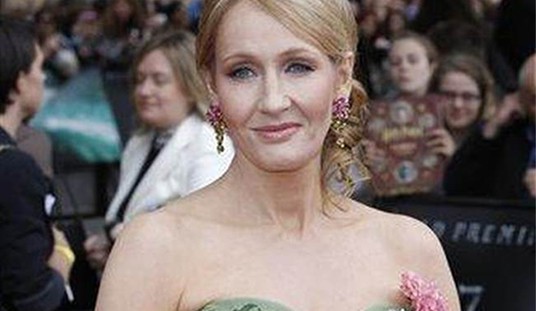Last week, a book review appeared in the Wall Street Journal by South African journalist Rian Malan, a man from the Afrikaner family who ran the apartheid regime but broke with them and became an opponent of apartheid. Still, he was a journalist of integrity who did not hesitate to report on and to write about the dark side of the African liberation movement.
His first book, My Traitor’s Heart, was an international bestseller in which Malan traced out his return from exile as he sought to learn the truth about his racist ancestors, as well as about the liberation movement that arose in response to the brutal apartheid regime. His new book, just out, is composed of a series of essays about South Africa today, including his investigation of the origins of the hit song “The Lion Sleeps Tonight,” made famous most recently by the hit play and film The Lion King.
In his book review, Malan reports on what to my knowledge is a little-known fact about Nelson Mandela, the first president of the post-apartheid South Africa and the titular leader of the African National Congress, which he became the symbol of during his many years of imprisonment on Robben Island.
Mr. Malan refers to the fact that all the contemporary black South African leaders, from Mandela on, have sung the praises of leftist dictators such as Fidel Castro and Hugo Chavez, and among other things have been vigorous opponents of Israel. Led by Archbishop Desmond Tutu, they all depict Israel, as Tutu recently put it, as a state even worse than apartheid South Africa. Malan writes, commenting on how liberal journalists have dealt with this:
Mr. Foster finds it “strange” that the leader of a noble liberation movement should side with a nasty dictator. Well, yes. American liberals have always viewed the ANC as an army of hymn-singing moderates, striving for democracy in a Western sense. Readers of Foreign Affairs in the 1980s will recall Thomas Karis’s campaigns against troglodytes who claimed that the ANC was communist-dominated. The New York Times’s Joseph Lelyveld took a similar line in his reporting, then offered readers of “Move Your Shadow” (his Pulitzer-winning 1986 book about apartheid) several witty caricatures of seemingly demented anti-Communists who cast South Africa as a Cold War battlefield. At the time, it was fashionable to laugh at such people. But I am not laughing anymore.
Why is Malan at this late date looking at this issue again, years after the Cold War’s end? The answer comes from reading one of the books he reviews, Stephen Ellis’s External Mission. What he found is the following:
“External Mission” begins by annihilating conventional understandings of the circumstances surrounding the ANC’s 1961 declaration of war on apartheid. According to Mr. Ellis, all critical decisions were actually taken by the South African Communist Party (SACP), which sought support from Moscow and Beijing and then “bounced” the ANC into following its lead. Since white and Indian Communists couldn’t join the racially exclusive ANC, much of this bouncing was done by a charismatic black lawyer who was secretly a member of both organizations: Nelson Mandela. Indeed, Mr. Ellis goes so far as to report that Mr. Mandela was almost certainly a member, at least for a time, of the SACP’s central committee. (emphasis added)
As Mr. Ellis tells it, Mr. Mandela and those around him were intoxicated by the ease of Fidel Castro’s victory in Cuba and imagined a similar outcome for their own military venture. They sidelined ANC President Albert Luthuli, who was opposed to violence, and launched an amateurish bombing campaign. Within two years, they were all in prison or in exile.
Mr. Mandela’s membership of a militantly pro-Soviet movement was unlikely to win friends in the free world. More could be gained by portraying him as a black liberal, and Mr. Mandela and his lawyers crafted a masterful speech for Mr. Mandela to deliver from the dock during his 1964 trial for treason.
“The ideological creed of the ANC is African nationalism,” he said. “It is true that there has been close cooperation between the ANC and the Communist Party. But cooperation in this case is merely proof of a common goal — the removal of white supremacy.” Mr. Mandela went on to describe himself as a democrat in the classic Western sense, an admirer of the British and American systems of governance. “Africans just want a share in the whole of South Africa,” he concluded. “Above all, we want equal political rights. … It is an ideal I hope to live for. But if needs be, it is an ideal for which I am prepared to die.”
If Mr. Ellis is correct, Nelson Mandela was pulling wool over the eyes of the West. The SACP advocated not “equal political rights” but the establishment of what SACP theoretician Joe Slovo called a “vigorous dictatorship” in the Soviet style, with Slovo himself as Lenin. Comrade Slovo, a white man, dreamed of becoming black South Africa’s supreme leader after the Marxist takeover. His day never came. The Boers rumbled his bomb plot, and Mr. Slovo fled to London. His followers, the ANC’s rank and file, were consigned to military camps in Tanzania and later, Angola.
The bombshell, of course, is the news that Mandela himself was not only a Communist Party member, but a member of its central committee as well.
The truth is that the ANC leaders — all Communists — accepted “the logic of Stalinism.” That is why, he writes, the ANC guerrilla camps composed of rank and file young recruits treated dissidents in the old Stalinist way — through imprisonment, torture, and execution.
Some of us were not surprised to learn of this, although I must admit that I too never even thought that Mandela himself was a bona fide Red. Yet, on the general question of the ANC’s anti-Western radicalism, we were not fooled. Writing in Commentary about Mandela’s reception in America after he was released from prison, Josh Muravchik noted that “Mandela took the lead in persuading the ANC to abandon its policy of nonviolence in favor of armed struggle,” the strategy favored at the time by the hard international left. Muravchik quoted the late left-wing writer Andrew Kopkind, who wrote in The Nation that Mandela “reaffirms revolutionary values, socialist ideals, and egalitarian sentiments,” hence giving the Left “a sense that all is not lost.”
Mandela, Muravchik reminded us, supported Yasir Arafat, Libya’s Qaddafi, and, of course, Fidel Castro.
When asked about the repressive policies of such regimes, Mandela replied that “we have no time to be looking into the internal affairs of other countries.” Of course, the ANC and Mandela had argued that the rest of the world had to call into question the legitimacy of the apartheid regime, and indeed, look into its internal affairs.
Muravchik concluded: “That Mandela is a man of the Left there is no question,” but even he stopped short of claiming that Mandela was himself a Communist, writing only that he had said he believes in “socialism” and was influenced “by Marxist thought.” Muravchik himself, however, believed that Mandela’s chosen “rhetoric bears the earmarks of years spent within a Communist milieu.”
As for me, after a trip to South Africa for journalists, I wrote about my impressions in The American Spectator in an article titled “Red Hills of Africa.” I argued the following about the hopes of the South African Communist Party:
But with Communism fallen and apartheid falling, why should we care that a powerful Communist party still holds forth in South Africa? The answer is put succinctly by the leading Western scholar of South African Communism, Heribert Adam. … “Because SACP members are the major force that dominates the theoretical debates and strategies within the broad apartheid opposition, its own practice of [or lack of] internal democracy influences the style of the entire movement.” Americans sympathetic to Mandela prefer to ignore that the SACP has cemented its ‘people’s alliance’ with the ANC.”
When I wrote that article in 1992, I pointed out that the Communists recruited scores of 25- to 30-year-old militants from the township underclass, which one writer called “street Jacobins of the 1970s ghetto revolts.” At the time, the Communists controlled three-quarters of the ANC’s National Executive Committee, as well as all the major posts in its policymaking divisions. One of the South African Marxist dissidents, ANC leader Pallo Jordan, wrote in that year that the Stalinist political culture in the ANC had “produced a spirit of intolerance, petty intellectual thuggery and political dissembling.” Although he too saw himself as a Marxist revolutionary, Jordan wrote that socialism had developed “in an authoritarian and totalitarian fashion.”
Writing in Dissent in that same period, professor of African studies Richard L. Sklar pointed out that South Africa’s Communists had rejected “a fundamental ideological shift from Leninism to democratic socialism,” thereby revealing its members were sticking to their true Leninist roots. Jordan at the time feared that internal tensions in his country “might cause us to move in a Stalinist one-party direction.”
More than a decade has passed, and one must say that Rian Malan’s fears, expressed in his recent book review, are well-taken.
Currently, one corrupt government after another has taken power, and instead of a thriving multi-party democracy, the seeds of one party rule, led by the ANC and its Communist allies, are doing all they can to hold onto power. Under the leadership of Jacob Zuma, he writes, “the rich have grown richer; hospitals and schools continued to degenerate; corruption remained endemic.”
Totalitarianism and the Soviet Union may have disappeared, but as Malan puts it, it “lived on in our political style.” He reveals how just as Zuma and his side purged the former president and once Marxist Theo Mbeki, when the press arrived, they pretended to have a united front and that no one was opposed to the brutal manner in which Mbeki’s removal was orchestrated by Zuma’s thugs. “The ANC,” Malan writes, “was serenely united; any talk of divisions was the work of enemies.” The ANC leaders, “like their Soviet mentors, thought their subjects were entitled to nothing, not even explanations.”
The question, as Malan says: how long can revolutionary martyrdom be used by the ANC “to discredit opponents and stifle dissent?” How long can the ANC leaders see themselves “as the only legitimate power in South Africa, entitled to rule ‘until Jesus comes back?’” Last August, police of the ANC regime fired on striking miners near Johannesburg, killing 34 and wounding hundreds, just as the apartheid government had done in well-chronicled attacks on the old liberation movement in the years of apartheid.
Malan says that “violent strikes are spreading, and the smell of anarchy is in the air.” All Malan can say, looking towards the future of his country, is “God help us.”
So it seems that the ANC now sees fit to use the same tactics the old Soviet state used against its opponents. Killing miners, the very working-class whose support it once sought, is now fair game to preserve stability and to prevent any movement rising that could challenge the hegemony of the ANC as the only force that holds political power. Leninist tactics, without a socialist regime, is the mechanism of political rule, evidently, to this day.
At least, now that the truth is out about Nelson Mandela’s political roots and the influence of the Communists in South Africa, we should not be surprised when, soon, that country’s troubles again hit the front pages.
UPDATE:
My friend, the journalist James Kirchick, has just informed me that Malan had a longer article on Mandela and his Communist Party membership last year. Indeed, Malan provides much more substantial evidence in this version, and as he writes, it was completely ignored in South Africa.









Join the conversation as a VIP Member